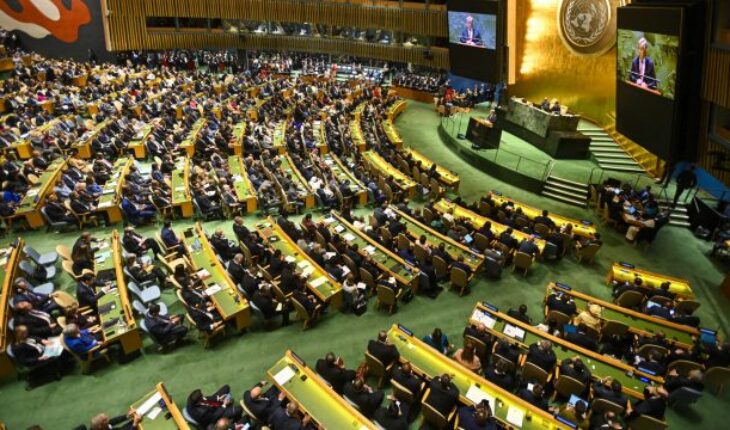United Nations: India has abstained on a UN General Assembly resolution to create an annual day to commemorate the 1995 genocide in Srebrenica during the civil war that followed the break-up of Yugoslavia.
The resolution sponsored by Germany and Rwanda was carried on Thursday with only 84 votes in the 193-member Assembly reflecting the deep divisions over it because most such motions are adopted by consensus.
Nineteen countries voted against it, while 68 abstained and 22 altogether stayed away.
India did not explain the reasons for the abstention.
With the passage of the resolution, the UN will commemorate every year on July 11 the killing of about 8, 000 Bosnian Muslims by Bosnian Serbs, who were Orthodox Christians, as “The International Day of Reflection and Commemoration of the 1995 Genocide in Srebrenica”.
The victims were men and boys separated from the women in the town of Srebrenica in Bosnia and Herzegovina by ethnic Serb fighters who overran it during the three-and-a-half-year-long civil war when the ethnic communities fought for supremacy in the nascent nation after Yugoslavia splintered.
Germany’s Permanent Representative Antje Leendertse said her country was sponsoring the resolution to prevent a genocide like that perpetrated by German Nazis from recurring.
Six million Jews were killed by Nazis during World War II.
The commemoration was to honour the memory of the victims of the Srebrenica massacre in Bosnia and was not directed against Serbs, but only against those who committed the killings, Leendertse added.
Aleksandar Vucic, the President of neighbouring Serbia, questioned the standing of Germany to make such a proposal given its history and said it was introduced for political reasons and to stigmatise the Serbian people.
Those who carried out the massacre have already been tried, convicted, and sentenced to prison, he said.
The resolution was one-sided and was silent on the massacres of Serbians and people of other ethnicities, he added.
Under the 1995 peace accord ending the civil war in Bosnia, it has a tripartite presidency shared by an ethnic Bosnian, a Serb, and a Croat.
The Serb President of Bosnia, Milorad Dodik, and Vucic came to the UN to campaign against the resolution, which they said was directed against the ethnic Serbs.
In the polarised UN, it was viewed through the prism of the confrontation between the West and Russia, making it appear as directed against Serbia, a Moscow ally, and ethnic Serbians in Bosnia, and as a Western attempt to show solidarity with Muslims, who are furious with the Western-backed Israel attacks on Gaza that have killed more than 34, 000.
The resolution introduced without a consensus and extensive consultations only ended up showing the rift in the UN.
While most Muslim countries voted with the West on the resolution, they also raised the killings in Gaza.
Egypt’s Permanent Representative Osama Abdel Khalek, for example, while supporting the resolution, criticised the West for not showing the same degree of concern for those killed in Gaza.
Mexico gave a typical reason shared by many who spoke, that it did not contribute to reconciliation in the region.
Mexico’s Permanent Representative Hector Enrique Vasconcelos y Cruz said that “inclusive dialogue among all concerned states and relevant parties of the region is the heart of initiatives such as this one, work towards reconciliation and strengthen efforts to promote the rights of victims to truth, justice and reparations”.
The resolution was “not accompanied by due process of inclusive consultations, especially with countries in the Balkans region, ” he added.





